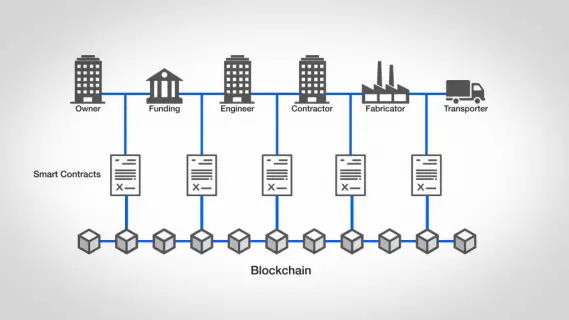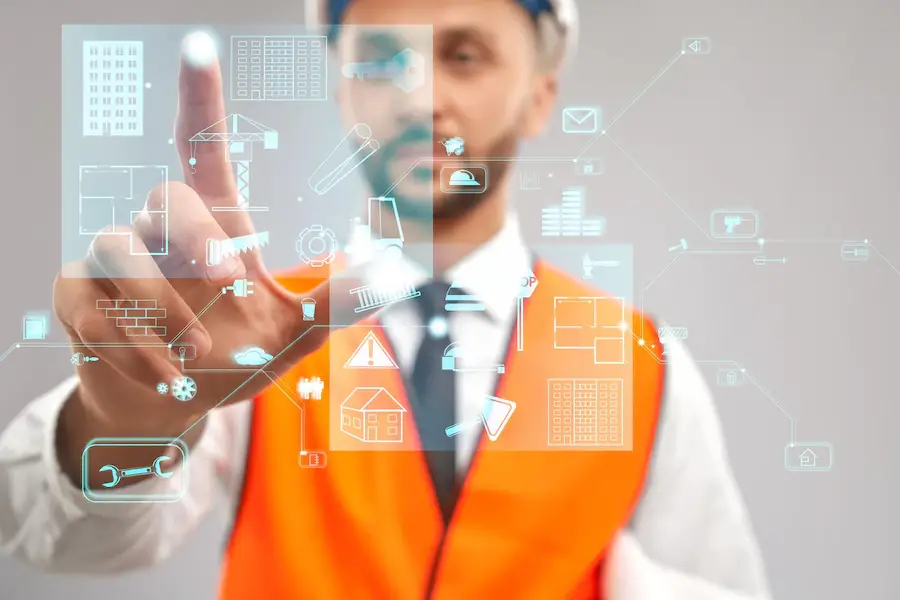One of the most often heard topics these days is how the building is evolving. Companies that embrace this new reality will position themselves for long-term success. Those that do not, on the other hand, will most likely struggle to stay up. Rapid technical breakthroughs are primarily driving construction change, and “blockchain” is surely one of the great buzzwords that industrial innovation has given rise to.
Most industry players, as well as the general public, have no concept of what blockchain is. According to HSBC research, “80% of individuals who had heard of the technology indicated they don’t comprehend what that is.”
However, the planet and the construction will continue to evolve. Now is the moment to learn more about this innovative new technology and how it may be used in the future of the building. This might have a significant impact on your organization. Why? Let’s have a look below.
4 Ways Blockchain Will Revolutionize Construction
So, how might blockchain be a beneficial change agent in the building industry? Here are four groundbreaking applications of blockchain in the building.
1. Smart contracts
Smart contracts are widely regarded as the building industry’s potential. According to the University of West England, electronic contracts that eliminate the need for middlemen while saving time and money are primed to disrupt the business. Blockchain is one method for updating these contracts and recording transactions.
What is the fundamental premise? Enstoa has provided a thorough illustration of how a scenario like this may play out.

It would very certainly include the development of some type of centralized monitoring system in which the parties involved set the rules, regulations, punishments, and so on for the project that they’re operating on together. As the project proceeds, the technology will try to automatically apply these rules and guidelines. For example, if an item was not transported on time, the blockchain network would register it and suitable retaliatory action may be taken in accordance with the pre-agreed-upon norms and regulations. If there is a penalty charge, for example, the transaction might be completed automatically using bitcoin or cryptocurrency.
Fundamentally, creating such a system would not only enhance efficiency and prevent disagreements from occurring, but it might also help to make the people involved more accountable.
2. BIM
You’ve probably heard of and are now utilizing different building information modeling (BIM) technologies on your construction projects, but the marriage of BIM and blockchain might be a lethal mix. When used together, BIM and blockchain may significantly improve the efficacy of smart contracts.
As buidlbee.com reports, in BIM the model itself can be utilized as a part of the agreement between the job’s participants. As a result, all parties would work together to match the real physical building on the project to the BIM model specified in the contract. Any variation from the model may need rework or order changes. Integrating BIM into smart contracts may further limit payment when the project is completed in accordance with the digital blueprints.
Again, combining BIM with blockchain may help to keep all project participants responsible and increase transparency. The combination has the potential to boost the usefulness of BIM technology. BIM now employs peer-to-peer networks to share information, but blockchain might allow for real-time changes. This continuous feedback and monitoring would aid transparency, improve overall communication, and eventually result in a greater level of craftsmanship on a project.
3. Payments
The blockchain idea is based on monetary exchange, albeit through the use of bitcoin and/or cryptocurrencies. In other words, blockchain may be used to speed up payment processing.
Receiving regular payments to all project stakeholders is a big difficulty for many businesses. The inability to pay on time can result in conflict, and when a dispute emerges, there is a risk that the project will fail.
So, how might blockchain help with payment processing? Simply said, by boosting security and providing traceable data. BuilderChain, a platform aiming to transform the way subcontractors are hired and compensated, is one technology ready to play a role. It can help to guarantee that subcontractors are paid on time and that relations with reputable subcontractors are nurtured rather than destroyed.
4. Management of the Supply Chain
If your supply chain is out of sync, your project will suffer. There will almost certainly be several delays, which will result in decreased output, cost overruns, and an angry owner.
How does blockchain affect supply chain management in construction?
It may also be incorporated into a number of the other parts of the building outlined above. Blockchain, in particular, can aid in the tracking of physical things from their point of origin to their eventual destination. It has the ability to promote openness, allowing all stakeholders to remain on the same page and minimize possible errors and oversights.
A Bright Future
Likewise, blockchain can assist contractors in using unique digital-specific verification to check vendors and suppliers, allowing them to build a reputation over time depending on how successfully their work is completed. These digital IDs might serve a dual purpose by assisting your organization in verifying the credentials of any subcontractors before they are employed.
